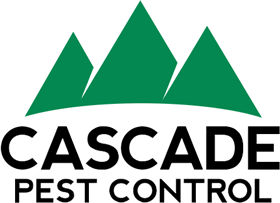Author: Kurt Treftz, Cascade Pest Control
One of the most notorious household pests, the sight of a spider or its web usually incites a degree of panic in the average resident. In Washington in particular, our mornings can be rudely interrupted by running into a web that has been spun across our path out the door.
While their webs can be inconveniently-placed and they look creepy and dangerous, there are many misconceptions about these critters that gain them more enemies than necessary.
Debunking Spider and Arachnid Misconceptions
Better understanding this species is key to being able to effectively co-habitate with them, as a lot of the stigma around spiders is rooted in myth and inaccurate info. Read on to get better acquainted with the numerous ways that spiders are helpful, not harmful!
Spiders are not insects.
While they look as creepy and crawly as other insects you think of, spiders belong to their own species of arachnid. Furthermore, spiders are only one order of the “Arachnida” class; other commonly-known orders include scorpions and ticks.
Spiders actually feed on a diet of insects. Their presence decreases tick, bed bug, fly, mosquito, and even cockroach populations. So, usually, seeing a few spiders here and there is actually helping keep your home insect free!
“Spider Season” is not really a season.
While we may feel like we see or run into more spiders around late summer and early autumn, what we are actually noticing is regional spiders reaching maturity. These specific spiders were already around and occupying the spaces we find them, they are just a bit bigger and therefore more visible than they were at the start of summer.
You might also see indoor spiders scurrying around more as they mature because they are looking for a mate. Realistically it isn’t until later in the fall that spider populations actually start to rise.
Putting household-spiders outside is just as bad as squishing them.
The intention is kind, but spiders that have become accustomed to living indoors are not equipped to survive outdoors. They will die just as surely if you relocate them outside as they would if you killed them on site.
Your home’s ecosystem truly benefits from a few spiders hanging around, so avoiding killing them is best. If your issue is seeing the spider, or having it in a space like your bedroom or kitchen, a better solution is to relocate them to the garage or attic where they will be more out of the way and still in an environment in which they can survive.
Spiders don’t bother you when you sleep.
It is a complete myth that you swallow any amount of spiders per year during the night. Spiders vision cannot accommodate objects as large as we are, so they usually perceive us no differently than the floor or another inanimate surface, except for the vibrations that we emanate.
Because of their relatively poor vision, a large part of spiders’ navigation center is sensing vibrations. A human laying down breathing, or even snoring, at night gives off enough waves to cause spiders to avoid us all together.
This also decreases the chances of us being bitten by spiders as well. Unless threatened and bothered by us trying to trap them, a spider has no reason to perceive our bodies as any different than the ground. So remain calm the next time you run into a spider web!! The chances are very low that you will be attacked.
Spiders are not poisonous.
This misnomer is usually trying to communicate a “venomous” characteristic, as almost every spider does have venom that they use to incapacitate their prey. This venom is primarily an insecticide and is not used for defense.
Furthermore, spiders’ fangs are so small and imperceptible that we wouldn’t be able to tell if we were bitten. The most venomous species of spiders are not common in the Pacific Northwest, so you should not be too concerned about spider bites causing you any harm—again, spiders rarely are aggressive towards humans unless they feel threatened. Learn more about spiders in the Pacific Northwest.
Friendly Neighborhood Spider Control Specialists
Let Cascade Safely Protect Against Spider Infestations
While a few spiders here and there do help keep your home free of more harmful insects and pests, there is a threshold when they become more invasive than you would like. In these instances, a professional pest control service can help wrangle and eliminate these populations.
Cascade Pest Control has been working in the community for forty years to provide eco-friendly, thorough, and effective pest and spider control for local homes and businesses. Our certified and trained technicians are experts in their fields, and are happy to help you however we can.
When it comes to spiders, the main preventative measure is preventing them from entering your home. By sealing and caulking any gaps in baseboards, siding, roofing tiles, and entrances to basements or crawlspaces, you are decreasing the potential entry sites for flexible arachnids. We will even swipe away any cobwebs and distracting webs we find while we are doing our inspection!
As for established spider infestations, you can be sure that we will safely remove and identify the cause of the infestation to ensure that the proper measures are taken to abate and prevent future issues, while causing no undo inconvenience or danger to you and your family.
Get started with Cascade Pest Control today! Call 888-989-8979 or Request a Quote online today!
